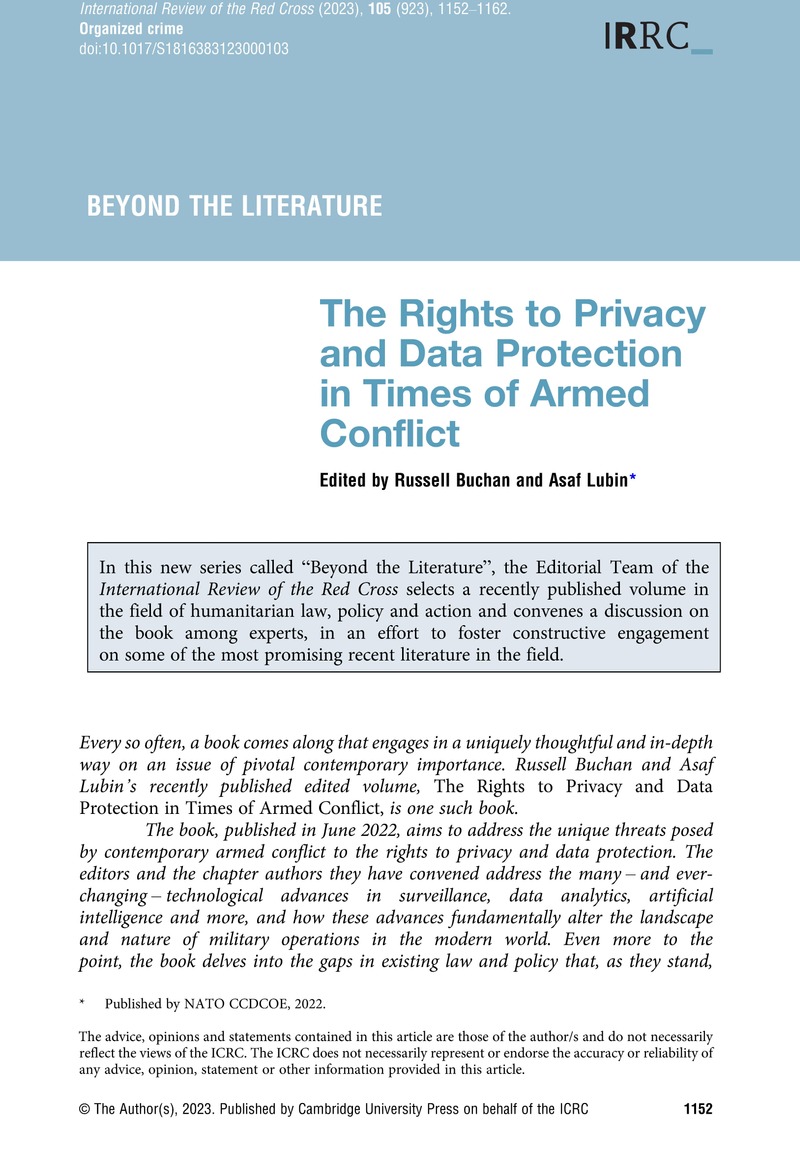No CrossRef data available.
Article contents
The Rights to Privacy and Data Protection in Times of Armed Conflict Edited by Russell Buchan and Asaf Lubin
Review products
Published online by Cambridge University Press: 24 May 2023
Abstract

- Type
- Beyond the literature
- Information
- International Review of the Red Cross , Volume 105 , Issue 923: Organized Crime , August 2023 , pp. 1152 - 1162
- Copyright
- Copyright © The Author(s), 2023. Published by Cambridge University Press on behalf of the ICRC
Footnotes
The advice, opinions and statements contained in this article are those of the author/s and do not necessarily reflect the views of the ICRC. The ICRC does not necessarily represent or endorse the accuracy or reliability of any advice, opinion, statement or other information provided in this article.
Published by NATO CCDCOE, 2022.
References
1 Dunant, Henry, A Memory of Solferino, 1862 (reprinted in English by the ICRC, 2010), p. 127Google Scholar.
2 The Rights to Privacy and Data Protection in Times of Armed Conflict, p. 4.
3 Regulation (EU) No. 2016/679 on the Protection of Natural Persons with Regard to the Processing of Personal Data and on the Free Movement of Such Data, and Repealing Directive 95/46/EC, 2016 OJ (L 119), 2016 (GDPR). According to Article 2, as elaborated in the preamble of the Regulation, the GDPR does not apply to “issues of protection of fundamental rights and freedoms or the free flow of personal data related to activities which fall outside the scope of Union law, such as activities concerning national security. The Regulation does not apply to the processing of personal data by the Member States when carrying out activities in relation to the common foreign and security policy of the Union.” Preamble, para. 16.
4 Brussels Privacy Hub and ICRC, Handbook on Data Protection in Humanitarian Action, 2nd ed., 2020.
5 European Union Agency for Fundamental Rights and Council of Europe, Handbook on European Data Protection Law, 2018 ed., pp. 101, 111Google Scholar.


